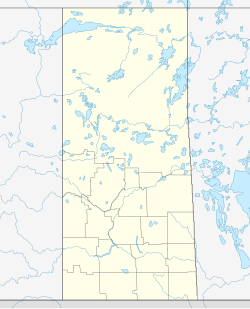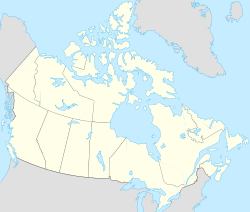Wood Mountain, Saskatchewan
| Wood Mountain | |
|---|---|
| Village | |

Saskatchewan Wheat Pool elevator
|
|
| Coordinates: 49°13′18″N 106°13′32″W / 49.221547°N 106.225566°WCoordinates: 49°13′18″N 106°13′32″W / 49.221547°N 106.225566°W | |
| Country | Canada |
| Province | Saskatchewan |
| Region | South-central |
| Census division | 3 |
| Rural Municipality | Old Post |
| Incorporated (Village) | 1930 |
| Government | |
| • Governing body | Wood Mountain Village Council |
| • Mayor | Michael Klein |
| • Clerk | Sherry Mielke |
| • MP | David L. Anderson |
| • MLA | Yogi Huyghebaert |
| Area | |
| • Total | 0.61 km2 (0.24 sq mi) |
| Population (2006) | |
| • Total | 20 |
| • Density | 32.6/km2 (84/sq mi) |
| Time zone | CST |
| Postal code | S0H 4L0 |
| Area code(s) | 306 |
| Highways |
Highway 18 Highway 358 |
| Railways | Canadian Pacific Railway (Defunct) |
| Website | Village of Wood Mountain |
Wood Mountain is a village in Old Post Rural Municipality 43, Saskatchewan, Canada. The town's name is derived from the Red River Métis words "Montagne de Bois" (meaning mountain of wood in French), due to the abundance of poplar trees in the otherwise barren region. Highway 18 and Highway 358 intersect south of the community.
Wood Mountain is known for its annual Stampede that has been held every year for more than 120 years. It is also known for its Sprinkle Fresh Spring Water taken from the Flowing Springs Ranch.
This village is the administrative headquarters of the Wood Mountain Dakota Sioux First Nation band government.
History taken from: Wood Mountain, SK: Our History
Wood Mountain's first European settlers came in the 1870s, when about 35 Métis families moved here after the failure of the Red River Rebellion. Boundary Commission survey teams came through shortly after to mark the 49th parallel. They built the cabins that in 1874 became the first Wood Mountain North-West Mounted Police (NWMP) post. Chasing out the whiskey traders didn't take long, and the post was closed the next year.
Today Wood Mountain is a peaceful area, but during the days of Sitting Bull and James Walsh this was one of the most politically volatile spots in North America. The famous Sioux medicine man Sitting Bull and as many as 5000 of his Sioux (Lakota) followers took refuge here from the U.S. Army after the Battle of the Little Bighorn in 1876. General George Custer and his 7th Cavalry were virtually wiped out when they foolishly attacked the Sioux, and the Canadian government was concerned that Sitting Bull might attack Canadians.
...
Wikipedia


